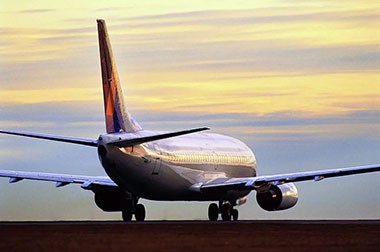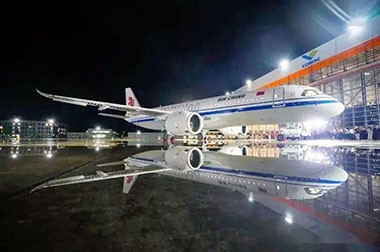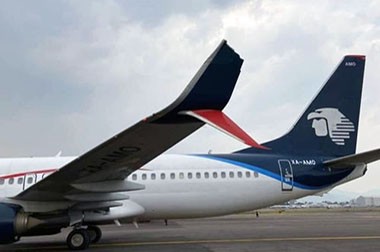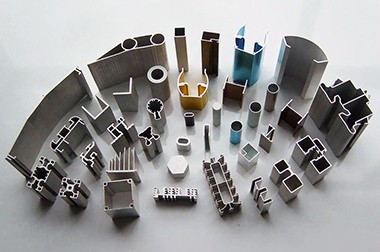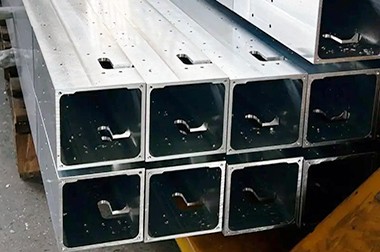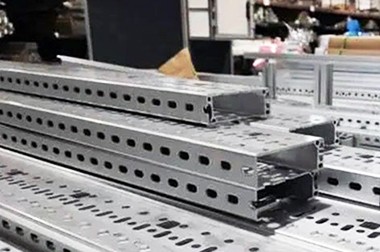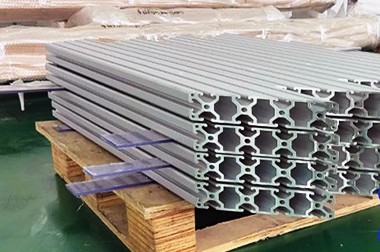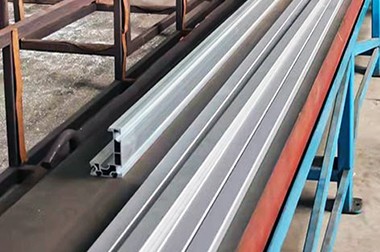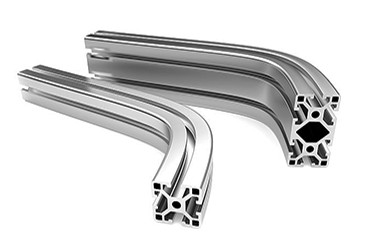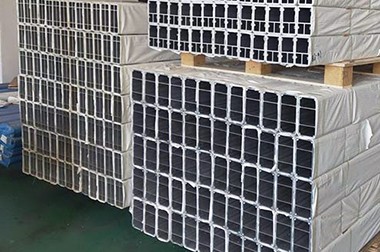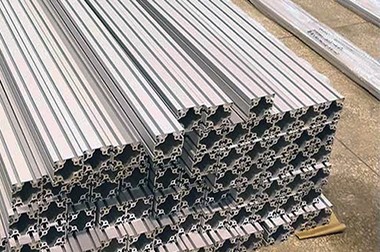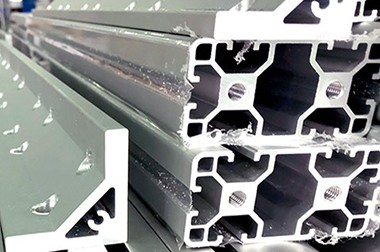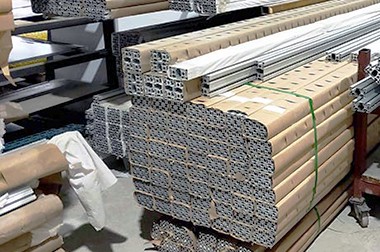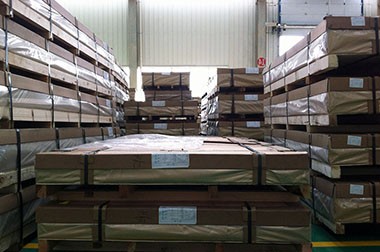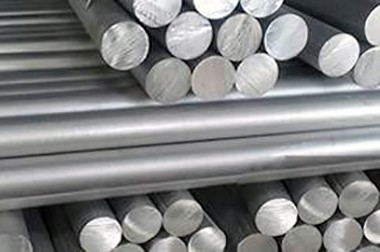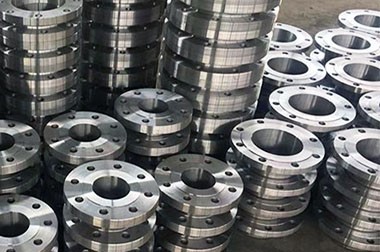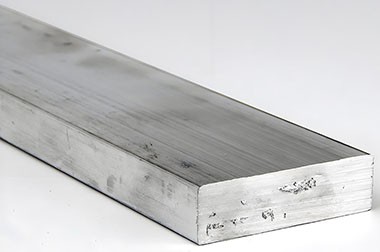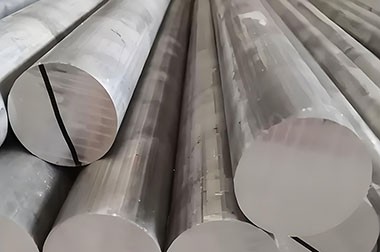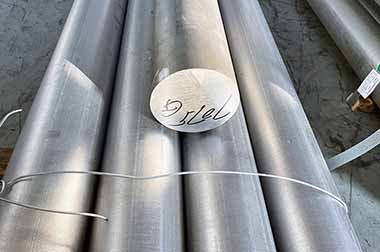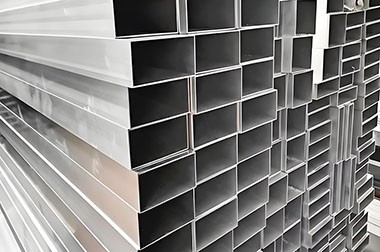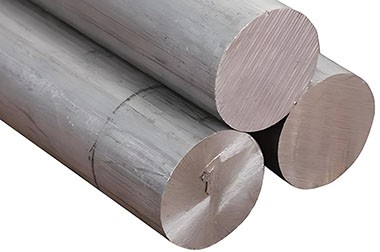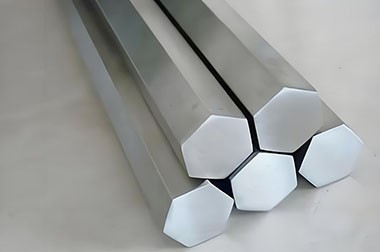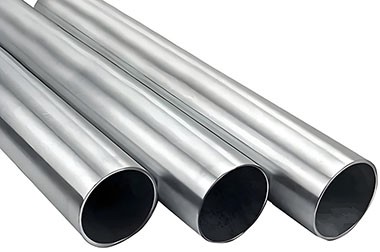7075 Aerospace Aluminum Profile Extrusion
7075 aluminum extrusions are used in the aerospace field to ensure the reliability of aircraft structures in high-strength environments while meeting the demands of lightweight design.
7075 aluminum alloy is a high-strength aluminum alloy that is widely used in the aerospace industry due to its excellent mechanical properties and good corrosion resistance. The main components of 7075 aluminum alloy include zinc, magnesium, copper, and small amounts of other elements, and it is generally considered one of the strongest aluminum alloys.
With its high strength, 7075 aluminum alloy is one of the main structural materials in the aerospace industry. The development of modern aviation requires structural materials to have higher strength, better fracture toughness, and resistance to stress corrosion cracking.
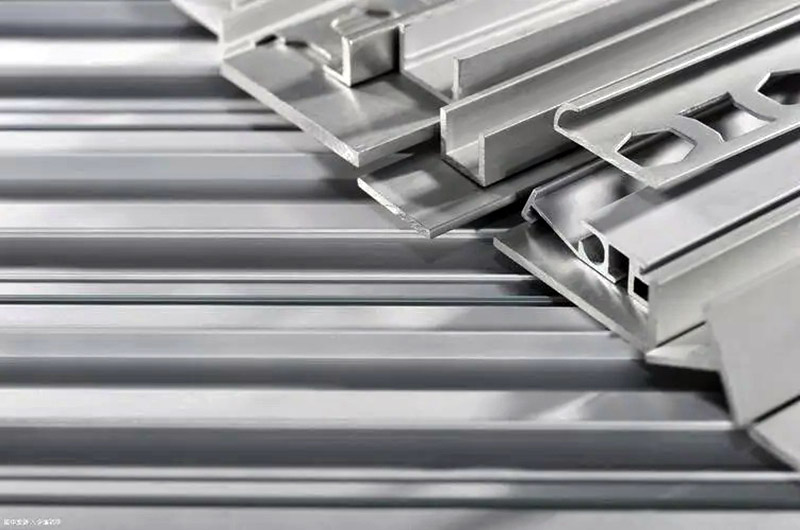
Specifications of 7075 aerospace grade aluminum extrusions
Currently offering to the following specifications:
AMS-4154, AMS-4166, AMS-4167, AMS-4168, AMS-4169
ASTM-B221
Latest Designation: AMS-QQ-A-200/11, AMS-QQ-A-200/15
Other Specifications: ABS, ASNA, LN, Werkstoff, NTA, DAN, AIR
7075 aerospace grade aluminium extruded profile products
7075 T6 T651 Aluminum Extrusion Profile
The 7075 T6 T651 aluminum extrusion profile is a high-strength aluminum alloy that has undergone a heat treatment process (T6) and a solution heat treatment (T651) to enhance its mechanical properties. This alloy contains zinc as the primary alloying element and offers exceptional strength-to-weight ratios, excellent fatigue resistance, and good corrosion resistance. The T6 state indicates that it has been artificially aged, while the T651 condition refers to additional stress relief, making it suitable for applications requiring dimensional stability.
Applications in Aviation
- Airframe Structures: Utilized in critical components such as aircraft wings and fuselage sections where weight reduction is essential without compromising strength.
- Landing Gear: Used in manufacturing landing gear components due to its high strength and ability to withstand impact loads.
- High-Stress Components: Ideal for structural elements that experience dynamic loads, such as wing spars and frames.
7075 T73 T7351 T73511 Aluminum Extrusion Profile
The 7075 T73 T7351 T73511 aluminum extrusion profile features various tempers within the 7075 alloy series. T73 is a strain-hardened condition, while T7351 and T73511 involve specific aging processes that enhance stress corrosion resistance. This combination provides a good balance of mechanical properties and improved resistance to stress corrosion cracking, making it suitable for demanding environments.
Applications in Aviation
- Aircraft Components: Often used in components that require high strength and resistance to corrosion, such as aircraft frames and bulkheads.
- Corrosion-Prone Areas: Suitable for parts exposed to aggressive environments, like those in military aircraft or coastal operations, where enhanced corrosion resistance is critical.
7075 Aluminum Extruded Tube
7075 aluminum extruded tubes are hollow sections made from the 7075 alloy, known for its superior mechanical properties. These tubes can be produced in various diameters and wall thicknesses, allowing for customization based on specific structural requirements. The alloy's high strength and lightweight nature make it a preferred choice in demanding applications.
Applications in Aviation
- Fuel Lines and Hydraulic Systems: Commonly used for fuel lines, hydraulic tubing, and other fluid transfer applications due to their high strength and lightweight characteristics.
- Aircraft Structures: Employed in structural applications where weight savings are critical, such as in the fuselage or wing assemblies.
7075 Aluminum Extruded Bar
7075 aluminum extruded bars are solid sections produced from the 7075 alloy. These bars can vary in cross-sectional shapes, including rectangular and square, and are characterized by their excellent mechanical properties, including high tensile strength and fatigue resistance.
Applications in Aviation
- Structural Components: Utilized in the fabrication of aircraft components, such as wing ribs and spar reinforcement, where high strength is essential.
- Machined Parts: Often used as raw material for machining parts like brackets, supports, and other structural elements in aircraft.
7075 Aluminum Angle Extrusion
7075 aluminum angle extrusions are L-shaped profiles produced from the 7075 alloy, providing strength in two dimensions. These angles are available in various sizes and thicknesses, making them versatile for numerous applications.
Applications in Aviation
- Support Structures: Frequently used as braces or supports in aircraft frames, offering enhanced stability and strength.
- Joining Components: Commonly used for creating joints between different structural components, contributing to the overall rigidity and durability of aircraft assemblies.
Advantages of 7075 Aerospace Aluminum Profile Extrusion
1. High Strength-to-Weight Ratio
7075 aluminum profiles maintain a relatively light weight while withstanding extremely high loads. Compared to other metal materials, such as steel, the strength-to-weight ratio of 7075 aluminum alloy is significantly higher. This characteristic is particularly important in aerospace design, as the performance of an aircraft heavily depends on the optimization of its structural weight. Lightweight design can significantly improve fuel efficiency, reduce carbon dioxide emissions, and extend range, allowing aircraft to fly at lower operational costs.
2. Corrosion Resistance
Although the corrosion resistance of 7075 aluminum alloy is slightly inferior to that of some other aluminum alloys (such as 6061 or 2024), proper surface treatments and coatings (such as anodizing) can significantly enhance its corrosion resistance. These treatments effectively prevent corrosion in harsh aerospace environments (such as high humidity and high salinity), thereby extending the service life of aerospace components.
3. Machinability
The extrusion process of 7075 aluminum profiles allows for the manufacturing of complex-shaped components, providing flexible design options. The extrusion process enables 7075 aluminum profiles to be produced in various cross-sectional forms to meet the design requirements of different aircraft. Due to the good machinability of 7075 aluminum profiles, additional machining steps can be reduced during assembly while ensuring strength, which not only saves time and costs but also improves production efficiency. Furthermore, subsequent processing (such as welding and heat treatment) of 7075 aluminum profiles is relatively easy, which is especially important for manufacturing aerospace components.
Chemical composition of 7075 aircraft grade aluminum extrusion
| Element | Composition (%) |
| Si | 0.40 |
| Fe | 0.50 |
| Cu | 1.2-2.0 |
| Mn | 0.30 |
| Mg | 2.1-2.9 |
| Cr | 0.18-0.28 |
| Zn | 5.1-6.1 |
| Ti | 0.20 |
| Other | 0.20 |
| Al | Remainder |
Mechanical properties of 7075 aircraft grade aluminum extrusion
| Aluminium Alloy/Temper | Tensile strength Rm/Mpa | Yield strength Rp0.2/Mpa | Elongation /% A | HBW |
| 7075-T6 7075-T6510 7075-T6511 | 530-540 | 460-470 | 6 | 150 |
| 7075-T73 7075-T7310 7075-T73511 | 485 | 420 | 7 | 135 |
| 7075-T76 7075-T76510 7075-T76511 | 510-515 | 440-450 | – | – |
Specific Applications of 7075 Aluminum Profile Extrusion in Aerospace
1. Wing Components
- Wing Spars and Stringers: 7075 aluminum profiles are commonly used in the manufacturing of wing spars to provide structural support, as this alloy possesses extremely high strength and rigidity, along with some fatigue resistance. The extruded 7075 aluminum profiles can withstand the enormous loads and stresses generated during flight.
- Ribs and Supports: Due to the lightweight characteristics of 7075 aluminum and its ability to form complex geometries during the extrusion process, it is often used to manufacture internal wing ribs and supports.
2. Fuselage Structure
- Fuselage Frames and Reinforcements: 7075 aluminum profiles, with their high strength-to-weight ratio, are suitable for constructing the fuselage frame of an aircraft. Through the extrusion process, 7075 aluminum can form complex cross-sectional profiles, which provide additional strength and impact resistance to the fuselage, especially in load-bearing areas.
- Longitudinals and Frames: 7075 aluminum profiles are widely used in the long members and frames of the fuselage, enhancing the stability of the fuselage and helping to bear the stresses during flight and landing. Its extrusion capabilities allow it to maintain high strength while reducing weight.
3. Landing Gear Components
Landing Gear Supports: As one of the most critical load-bearing components of an aircraft, landing gear must possess extremely high strength and impact resistance. 7075 aluminum profiles, due to their remarkable strength and good fatigue resistance, are frequently used to manufacture landing gear supports, ensuring the safe bearing of the aircraft's weight and impact during takeoff and landing.
4. Aircraft Skin
Skin Stringers and Connectors: While 7075 aluminum alloy is primarily used for high-strength components, its extruded profiles can also be employed in the support structures of the aircraft skin, providing a lightweight yet sturdy framework that helps maintain skin stability.
5. Guiding Devices and Rotating Components
Control Devices and Guides: After extrusion, 7075 aluminum profiles can be made into guiding components, control rods, and various rotating structural parts, which require high strength and precision to ensure the aircraft's agile handling during flight.
You may also be interested in the following
-
2024 7075 Aerospace Aluminum for Door Components
2024 and 7075 high-strength aluminum alloys are used in aircraft door components to ensure durability, deformation resistance, and safety.
-
2024, 7075, and 7475 Aerospace Aluminum for Wing Skins
2024, 7075, and 7475 combinations exhibit excellent strength and fatigue resistance, making them suitable for wing skins to withstand deformation under stress.
-
2024 7075 Aerospace Aluminum for Fuselage Frames
2024, 7075, and 7475 aluminum alloys are essential materials in aerospace engineering, particularly for fuselage frames. Their unique properties enable engineers to select the most appropriate alloy based on specific requirements for strength, weight, corrosion resistance, and fatigue performance.
-
2024 7050 7075 Aerospace Aluminum for Horizontal Tail Fittings
Alloys 2024, 7050, and 7075 provide the necessary strength and stiffness for horizontal tail components of aircraft, ensuring reliable control surface performance.


